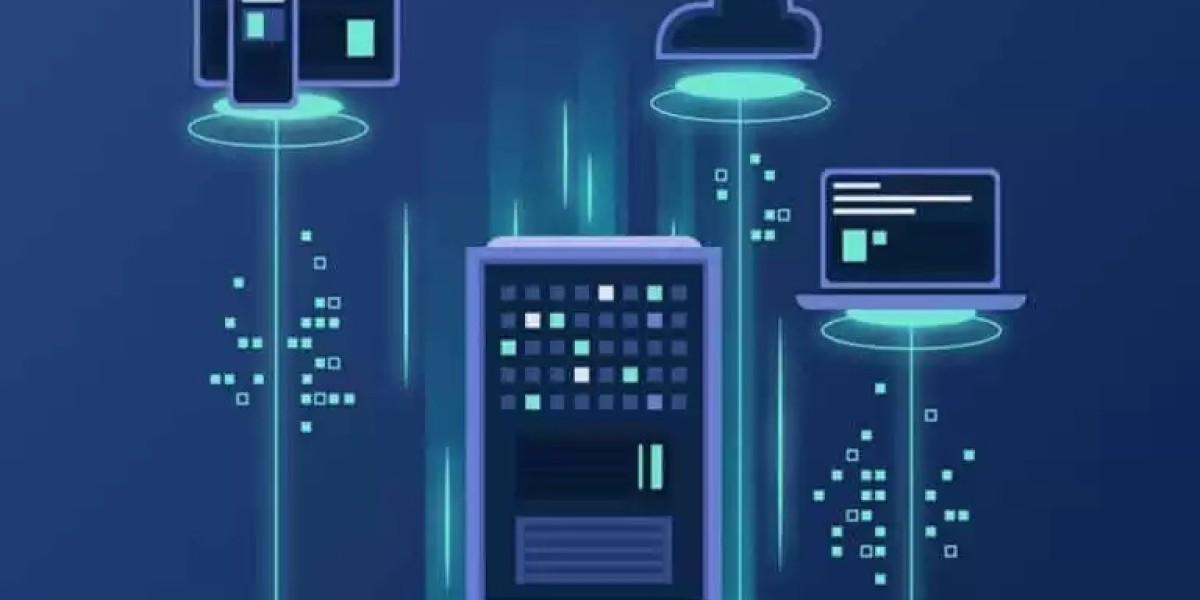The Internet of Things (IoT) is rapidly reshaping the way we live and work, enabling devices to communicate and share data seamlessly. IoT app development is becoming more and more in demand as the IoT ecosystem keeps growing. Whether it's smart homes, healthcare innovations, or industrial automation, IoT app development plays a pivotal role in creating intuitive, interconnected solutions that drive efficiency and enhance user experiences. This article explores how IoT app development is transforming industries and why businesses must embrace this technological advancement.
Understanding IoT App Development
At its core, IoT app development refers to the process of building mobile or web applications that enable communication between physical devices (such as sensors, wearables, and home appliances) and the internet. These apps act as a bridge, allowing users to monitor, control, and manage IoT devices from a central platform. The key to effective IoT app development lies in creating applications that provide seamless integration, real-time data processing, and an intuitive user interface (UI) for both consumers and businesses.
It is impossible to overestimate the significance of developing IoT applications. With the growing number of connected devices across various sectors, businesses must have reliable and user-friendly apps to harness the full potential of IoT technology. Whether it’s gathering insights from sensors, automating processes, or offering remote control capabilities, IoT apps are designed to make complex systems easier to navigate.
How IoT App Development is Impacting Different Industries
- Smart Homes and Consumer Electronics
The IoT revolution has made its way into our homes, transforming everyday devices into smart appliances. From thermostats that adjust based on your preferences to security cameras you can monitor from anywhere, IoT apps make controlling your home easier and more efficient. With IoT app development, companies can create apps that offer complete control of smart home devices, providing convenience and energy efficiency to users.
For instance, platforms like Google Home and Amazon Alexa allow users to interact with devices using voice commands. These IoT apps provide seamless integration with a variety of smart devices, ensuring that the home environment is always optimized to the user’s needs.
- Healthcare and Telemedicine
The healthcare industry is benefiting tremendously from IoT app development. IoT-enabled medical devices such as wearable health monitors, smart infusion pumps, and remote patient monitoring devices are transforming patient care. By developing specialized apps, healthcare providers can offer real-time data, allowing doctors to monitor patients remotely, improving patient outcomes while reducing costs.
For example, wearables that track heart rate, sleep patterns, and activity levels send data to IoT apps, where doctors can assess the patient’s condition in real-time. This enables a shift from traditional, reactive healthcare models to proactive, preventative care.
- Industrial Automation
In the industrial sector, IoT app development is revolutionizing operations through automation and real-time monitoring. IoT apps are used to manage machinery, monitor production lines, and track inventory, creating more efficient, data-driven workflows. With IoT-powered devices, industrial companies can predict when equipment will require maintenance, reducing downtime and improving overall productivity.
IoT apps can provide real-time analytics, helping companies make data-driven decisions that improve supply chain efficiency and reduce operational costs. By connecting sensors to machines and equipment, businesses can automate many tasks and remotely control their systems.
- Retail and E-commerce
IoT app development is also having a significant impact on the retail industry. Retailers can use IoT apps to track customer behavior, manage inventory, and personalize the shopping experience. Smart shelves equipped with sensors can automatically notify staff when they need to be restocked, and customers can receive targeted offers based on their shopping habits.
In e-commerce, IoT apps allow customers to interact with products in new ways. For instance, customers may see things in their homes before making a purchase thanks to augmented reality (AR) apps. These apps provide a more immersive shopping experience, helping retailers increase sales and improve customer satisfaction.
The Future of IoT App Development
The potential uses for developing IoT apps are almost endless as the technology continues to advance. Innovations such as 5G, artificial intelligence (AI), and edge computing are set to further enhance the capabilities of IoT apps. As devices become smarter and more interconnected, businesses will need to adopt IoT apps to stay competitive and meet the demands of a connected world.
For businesses looking to stay ahead, investing in IoT app development is no longer optional; it’s a necessity. By leveraging IoT technology, companies can create smarter solutions that improve efficiency, reduce costs, and enhance user satisfaction.
Conclusion
IoT app development is shaping the future of connectivity across a wide range of industries. Whether it’s in smart homes, healthcare, industrial automation, or retail, the power of interconnected devices is unlocking new possibilities for businesses and consumers alike. As IoT continues to evolve, businesses must embrace IoT app development to stay competitive, enhance their operations, and meet the growing demands of an increasingly connected world.


